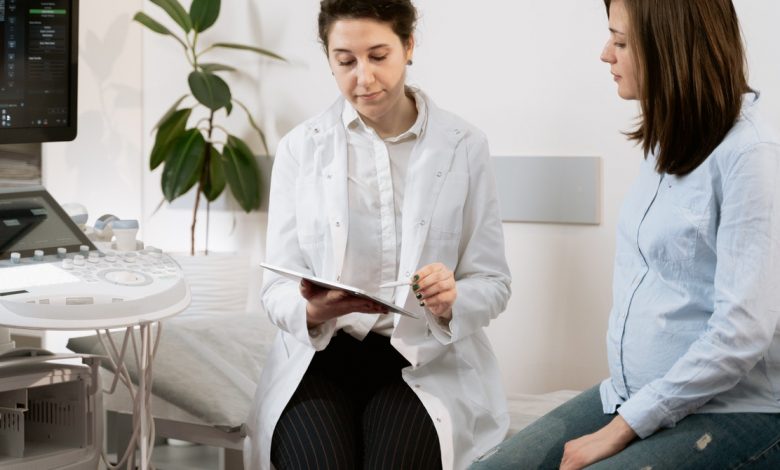Can An Abortion Pill Fail?

The abortion pill is also known as a medical abortion. There are two main types of abortions: medical abortions and surgical abortions. Medical abortion may be commonly called “the abortion pill” but it involves taking two types of abortion pills. These pills will terminate a pregnancy and are not the same as what is commonly known as the “morning-after pill” or Plan B, which is designed to prevent pregnancy.
The first pill that you will take is mifepristone. The second is misoprostol (also known as Cytotec). The use of the two medications together increases the effectiveness of the abortion and can reduce the duration of side effects.
You can obtain these medications through doctors and clinics that provide abortion services, like Planned Parenthood. You should never buy them online or on the black market. The cost of the medication depends on location and additional tests or follow-ups that may be necessary. According to Planned Parenthood, abortion procedures can cost up to $800. However, this cost fluctuates depending on the area where you live.
How safe is the abortion pill?
The abortion pill is a safe and effective option at early gestations, medication abortion accounted for more than one-third (39%) of all abortions in the United States in 2017. Medication abortion is as safe as surgical abortion, but is non-invasive and can be completed in a patient’s chosen setting, such as at home.
Medication abortion using a combination of mifepristone and misoprostol was first approved by the U.S. Food and Drug Administration (FDA) in 2000. In 2016, on the basis of scientific studies, the FDA updated its protocol to a regimen that is just as effective but uses less medication, has fewer side effects, has a longer time span for use (up to 70 days after a patient’s last menstrual period) and requires fewer visits to the provider. By the time the protocol was updated, this evidence-based regimen was already in widespread use. Decades of clinical evidence suggest that medication abortion can even be provided without laboratory tests or ultrasound prior to administration, opening up further possibilities for service delivery.
What happens during a medication abortion?
The abortion pill process has several steps and includes two different medicines.
First, you take a pill called mifepristone. This medicine stops the pregnancy from growing. Some people feel nauseous or start bleeding after taking mifepristone, but it’s not common. Your doctor or nurse may also give you antibiotics to take to prevent infection.
The second medicine is called misoprostol. You’ll either take the misoprostol right away or up to 48 hours after you take the first pill — your doctor or nurse will let you know how and when to take it. This medicine causes cramping and bleeding to empty your uterus.
For most people, the cramping and bleeding usually start between 1-4 hours after taking the misoprostol. It’s normal to see large blood clots (up to the size of a lemon) or clumps of tissue when this is happening. It’s kind of like having a really heavy, crampy period, and the process is very similar to an early miscarriage. (If you don’t have any bleeding within 24 hours after taking the second medicine, misoprostol, call your nurse or doctor.)
The cramping and bleeding can last for several hours. Most people finish passing the pregnancy tissue in 4-5 hours, but it may take longer. The cramping and bleeding slow down after the pregnancy tissue comes out. You may have cramping on and off for 1 or 2 more days.
You can take pain medicine like ibuprofen about 30 minutes before you take the second medicine, misoprostol, to help with cramps. You can also take anti-nausea medicine if your doctor or nurse gives it to you. Don’t take aspirin, because it can make you bleed more.
It’s normal to have some bleeding and spotting for several weeks after your abortion. You can use pads, tampons, or a menstrual cup — whatever’s the most comfortable for you. But your nurse or doctor may recommend you use pads for the first few days after the abortion so you can track how much you’re bleeding.
The last step is a follow-up with your nurse or doctor. You may go back into the health center for an ultrasound or blood test. Or you’ll get a pregnancy test to take at home, followed by a phone call with your nurse or doctor. These tests will make sure the abortion worked and that you’re healthy.
Can an abortion pill fail?
Yes, abortion pills can fail especially when they are not used correctly or when they are used with other substances or drugs that affect how they work. When misoprostol and mifepristone are used together, they have about a 98 percent effectiveness rate. While this effectiveness rate is high, it’s possible for a medical abortion to fail to terminate a pregnancy. In these cases, a woman would need to then undergo a surgical abortion.
The age of the pregnancy, the medication doses and administration, and whether or not a woman has been pregnant before may impact the effectiveness. The effectiveness rate decreases for each additional week of pregnancy.
In the unlikely case that the abortion pill doesn’t work and you’re still pregnant, your doctor or nurse will discuss your options with you. You may need another dose of medication or to have an in-clinic procedure to complete the abortion.
What can you not take with the abortion pill?
Using some drugs with the abortion pill can cause it to fail. Some products that may interact with the abortion pill: long-term corticosteroid therapy (such as prednisone), drugs affecting liver enzymes that remove mifepristone from your body (for example, azole antifungals such as itraconazole/ketoconazole, macrolide antibiotics including erythromycin, dexamethasone, rifamycins …
Also, avoid taking antacids that contain magnesium while using an abortion pill because they may make diarrhea it causes worse. If you need an antacid, consult your doctor or pharmacist to help you choose a product. For ulcer prevention, continue to take this drug for as long as you take NSAIDs.





